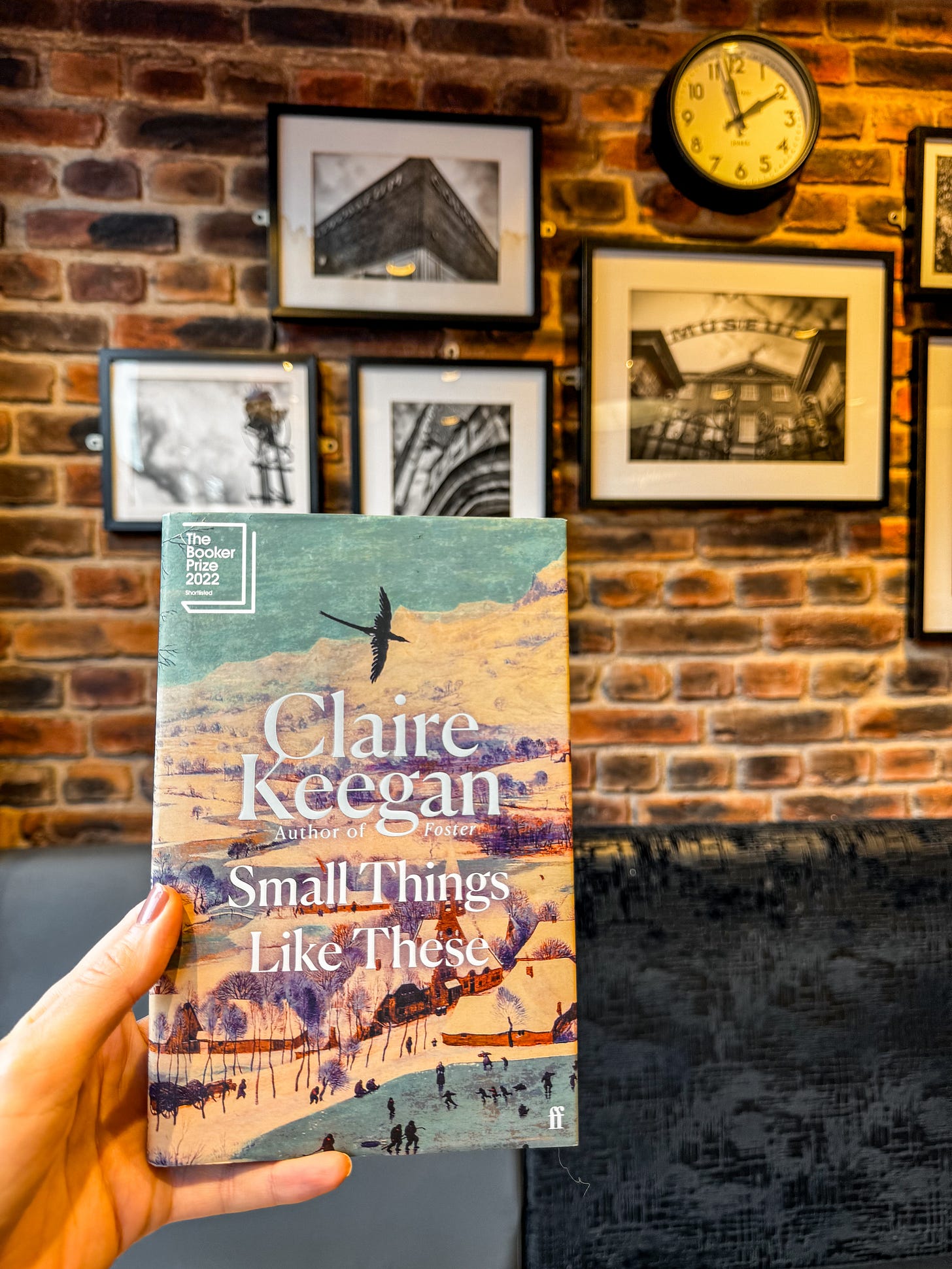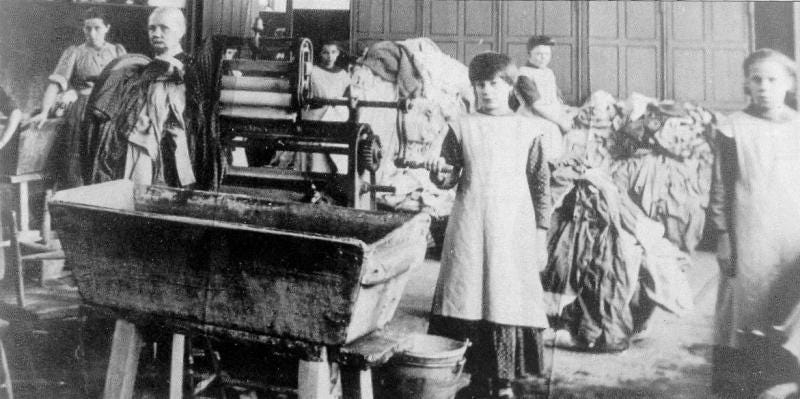"Small Things Like These" by Clair Keegan wasn't just shortlisted for the 2022 Booker Prize, it felt like a contender even if it had won! This deceptively short novel, easily finished in one sitting, is rich with thought-provoking themes.
The story unfolds gently, like a breeze, yet carries surprising depth and meaning. Told in a concise 100 pages, we follow Bill Furlong, a coal merchant in a small Irish town during the 1980s. As Christmas approaches, Bill uncovers a horrifying secret about a local Magdalene Laundry. *
This discovery presents Bill with a stark choice: remain indifferent or risk his comfortable life to help. Through Bill's internal struggles, Keegan makes us feel his every doubt and question. He's an ordinary man, living an ordinary life, but forced to confront a profound moral dilemma. Life, the story reminds us, doesn't care about your situation. Ultimately, it's our choices and actions that define who we are.
Bill is just like most of us – he works, lives, and sometimes yearns for a change from routine. But like all of us, he faces a defining moment. His wife, Eileen, is another relatable character. Focused on their family, she represents a common perspective – to avoid confronting uncomfortable truths. But the novel doesn't judge. Instead, it highlights the complexity of human nature.
Keegan's masterful understanding of human beings shines through. She's a natural storyteller who imparts valuable lessons without preaching. Her writing is marked by its lyrical simplicity and emotional clarity. Her prose is economical yet evocative, capturing the stark beauty of the Irish landscape and the nuanced emotions of her characters. The novella's brevity enhances its impact, making each word and scene carry significant weight. These are the kind of books that stay with you – leaving a lasting impact long after you turn the final page!
I read "Small Things Like This" and "Foster" by her, and I'm hooked! I'll definitely read anything else she writes!
*The Magdalene Laundries were institutions with a dark history, primarily operating in Ireland from the 18th to the late 20th centuries. Here's a deeper look at these laundries:
Origins and Purpose:
Originally founded in the 18th century, they were initially intended to house and reform women deemed to be "fallen" – prostitutes, unmarried mothers, or those who strayed from societal expectations.
Over time, particularly in Ireland, they became associated with the Catholic Church and evolved into forced-labor institutions.
Conditions and Abuse:
Thousands of women and girls, many with no criminal offenses, were confined in these laundries.
They were subjected to harsh conditions, including long hours of unpaid labor (washing clothes, sewing), little contact with the outside world, and emotional and physical abuse.
Many survivors have spoken out about the trauma they endured, including forced religious conversions and separation from their children.
The Magdalene Laundry System:
These institutions were often run for profit, with the women's labor generating income for the Church and the laundries themselves.
Shockingly, even government institutions used their laundry services, perpetuating the system.
The last Magdalene Laundry closed in Ireland in 1996.
Aftermath and Legacy:
Public awareness about the Magdalene Laundries grew in the 1990s, due partly to media investigations and survivor testimonies.
In 2002, the Irish government issued a formal apology to the survivors and provided some compensation.
The Magdalene Laundries serve as a stark reminder of the mistreatment of women and the power imbalances that can exist within religious institutions.
Further Resources:
If you'd like to learn more, you can search for the following:





One of my all time favorite stories. I also loved her short story "So Late in the Day"
I can't wait to pick up Foster!
- S
I loved both these books too. Claire Keegan writes so sparingly with such impact.